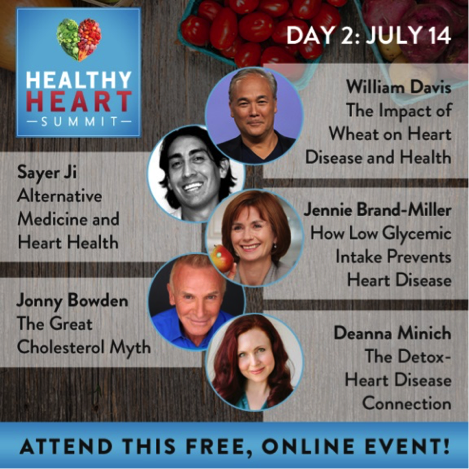 Today I focus on avoiding the use of insecticides and pesticides. I have to warn all people but especially people with gluten sensitivity, again and again to eliminate all chemical exposure.
Today I focus on avoiding the use of insecticides and pesticides. I have to warn all people but especially people with gluten sensitivity, again and again to eliminate all chemical exposure.
Why? Because nearly 100% of people with gluten sensitivity have methylation gene abnormalities, which is what I see it in my practice ( and I am writing up a study that shows 76% have at least one MTHFR gene polymorphism or variation, either c677t or a1298c, which affects detoxification as well as the production of neurochemicals and increases the risk of clotting).
The combination of gluten in the diet (in a gluten sensitive person) and MTHFR and chemicals is disastrous to the brain.
But most people with gluten sensitivity don't know they have gluten sensitivity and are at risk of methylation metabolism issues, and early death so I recommend everyone get tested. And if you find yourself to be gluten sensitive, go on a grain free, sugar free, dairy free, clean diet with fermented foods and bone broths.It is laid out as the GAPS protocol. www.gaps.me.
ADD and ADHD are common symptoms of gluten sensitivity. And there are many studies linking ADD with pesticide exposure.
Here is a report by Dr. Rothfeld MD encouraging all not to use insecticides in the home or the garden. Children are the most affected. Two new studies are reported that show the link between pyrethroid exposure and poor brain function in children. If one has MTHFR variants the effects of the pyrethroid exposure will be worse. The French research article is here http://www.sciencedirect.com/science/article/pii/S0160412015001245 and the study of a sample of US children is here http://www.ehjournal.net/content/14/1/44.
Go here to find tips on how to keep bugs at bay without toxic spray and the science behind pesticide damage.
My Bold....
Let's face it -- we spend our summers at war with bugs. Between the ant traps, citronella candles, and the bottles of Raid and Black Flag, we're turning our homes into chemical fortresses to keep the creepy-crawlies out. But while we're trying to outsmart those pesky bugs, those insecticides may be causing permanent damage to our kids' and grandkids' brains.
In fact, they may even be a secret culprit behind the massive spike in ADHD cases. A new study in the journal Environment International shows that common pyrethroid insecticides (I'll tell you how to spot them in a moment) may head straight to our kids' brains and interfere with their ability to learn and even concentrate. For the study, French scientists tested the amount of pyrethroid insecticides in the urine of 290 young children and measured their intellectual abilities. Kids with the highest levels of insecticides in their urine had the worst verbal and memory skills. These findings follow another study last month that showed a link between pyrethroid exposure and ADHD in children ages 5 to 15.
If you're using just about any household bug killer you picked up at a grocery store, there's a good chance it's a pyrethroid insecticide. They became extremely popular starting in the 1970s, as the country started phasing out DDT. You can typically identify a pyrethroid insecticide if you see cypermethrin, permethrin, deltamethrin, bifenthrin or cyfluthrin on the label.
One of the things I've discovered in my research on neurological diseases is that many of us have a genetic defect that prevents us from effectively eliminating toxins, like insecticides. These compounds literally pool in our brains and unleash a lifetime of damage. And pound for pound, children are more exposed to the stuff than you are. So it's common sense to me that these dangerous insecticides could have lasting, harmful effects on their young brains.
So what can you do? First off, avoid any insecticides with the chemicals I mentioned earlier. There are plenty of safe, organic insecticides on the market, made with natural ingredients like cayenne. Second, continue to make your home unfriendly to pests. That can be as simple as taking out the trash frequently, not leaving dishes in the sink, and keeping kitchens and baths as dry as possible.
Just taking these simple precautions can keep the war on bugs from turning into a war on our brains.
Dr. Glenn S. Rothfeld, M.D.
To Your Health
Dr. Barbara



